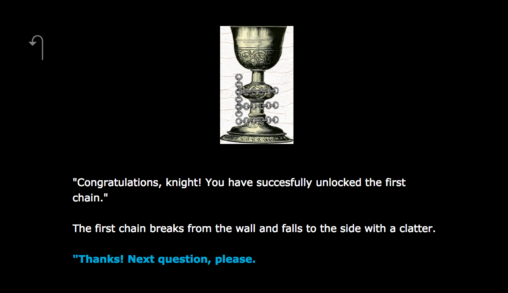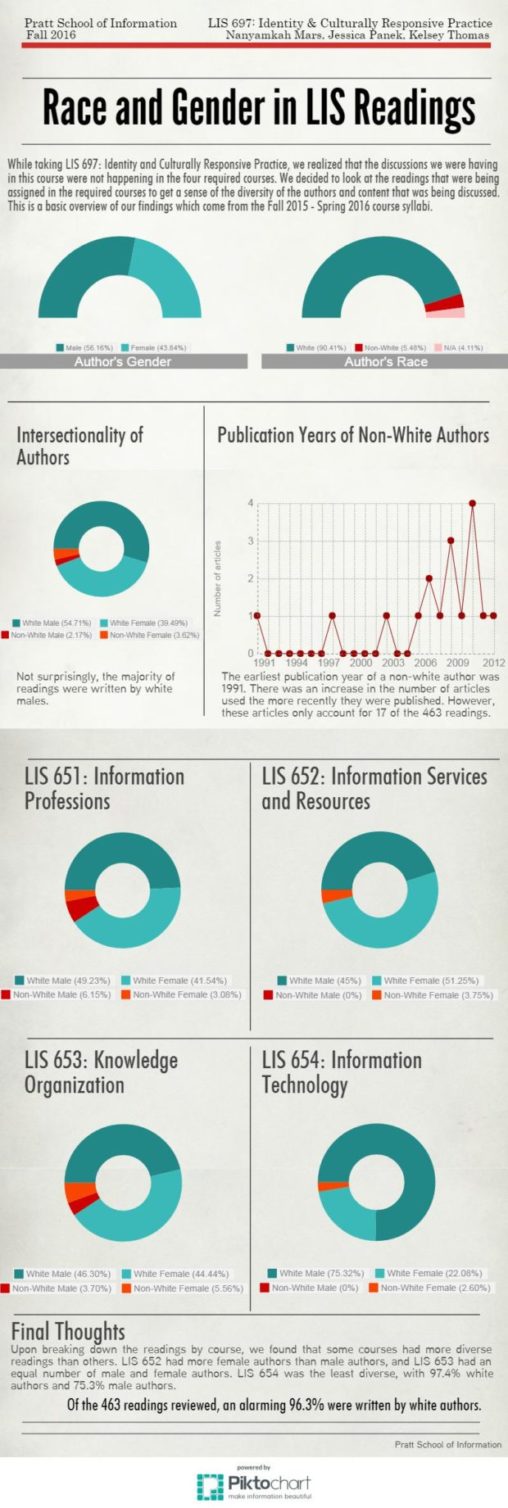Tag: academic libraries
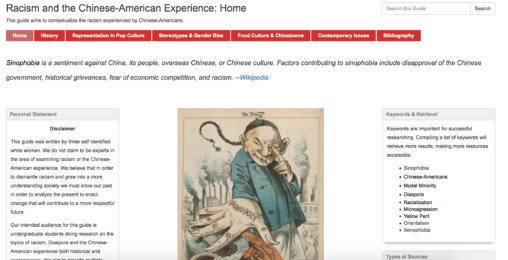
“Racism is a learned behavior, influenced by fear and sustained by ignorance. This Libguide was created to help students better contextualize how discriminatory policies and fear mongering produced widespread racism against Chinese-Americans. In order to dismantle racism, it is imperative to recognize it’s many forms both historical and contemporary.
The creators, three self-identified white women, do not claim to be experts on the Chinese-American experience and we recognize our privilege in the creation of this guide. We welcome any and all criticism and hope to create discussion around the power of librarians as content creators.”
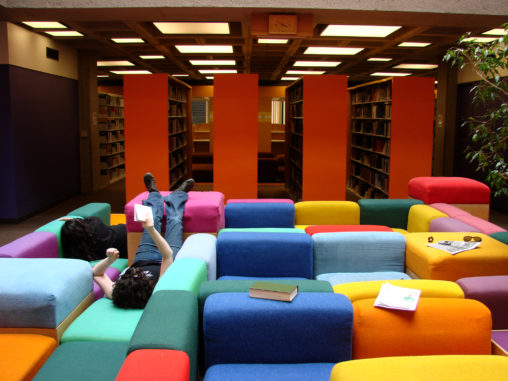
“Growing the Academic Library: Past, Present & Future” is an exploration of how academic libraries have changed and grown, organized into three major areas: resources, physical space, and education. This comprehensive literature review provides an understanding of where academic libraries have been as well as where they’re going, the latter including emerging ideas such as patron-driven acquisition and student activist archiving. An overall theme is the symbiotic relationship between the library and the wider university.
To celebrate the 200th Anniversary of Mary Shelley’s Frankenstein, this digital humanities project maps the letters in both Frankenstein and Dracula providing a representation of Gothic literature during the 19th Century.
Exhibit guide to the Kerry James Marshall exhibit at the MET in Fall 2016
“13 min video comparing two film databases and recommending one for purchase
https://www.youtube.com/watch?v=R_-jWfIHXJQ”
The “LibGuide for Film and Media Preservation” is a centralized location tool to serve the needs of beginning professionals working with and managing moving image media, analog and digital, in information environments such as archives, museum and special collections and libraries. In addition, the resource guide is designed as a supplement to graduate students taking relevant course work in library and informational science coursework, such as film and media collections. The LibGuide includes information resources including encyclopedias, dictionaries, and indexes, selected for their coverage across disciplines including varied topics as preservation, conservation and restoration, film history, and librarianship.
This panel explores research and recommendations in community building and engagement at three organizations: the Finkelstein Memorial Library; Pax Gaming Community; and the United States Military, Academic Library, West Point. Special emphasis is placed on social media.
In a collaborative study carried out by Professor Pattuelli’s Fall 2012 Human Information Behavior class, students designed a qualitative research study that sought to reveal common themes relating to reader preferences when choosing between electronic and print material, specifically in an academic context.
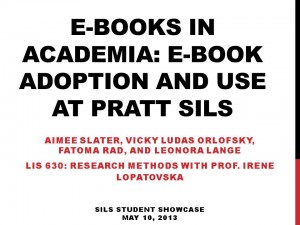
As part of a larger collaborative study on the use of e-books in academia conducted with Cristina Pattuelli’s Human Information Behavior course and partner libraries, students of Irene Lopatovska’s Research Methods course used three data collection methods to study how e-books are currently being used by SILS students.
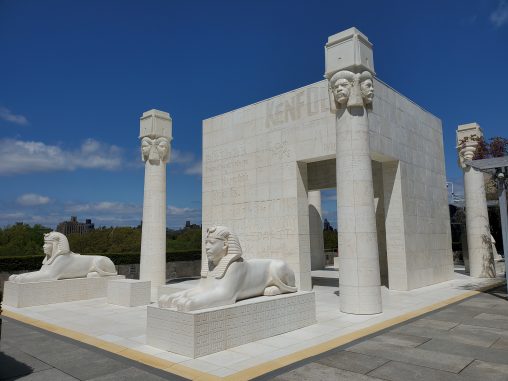
![from MARC to BIBFRAME [!] - oster for #infoshow2018 by Sarah Adams](https://studentwork.prattsi.org/infoshow/wp-content/uploads/sites/2/from-MARC-to-BIBFRAME--508x381.jpg)
